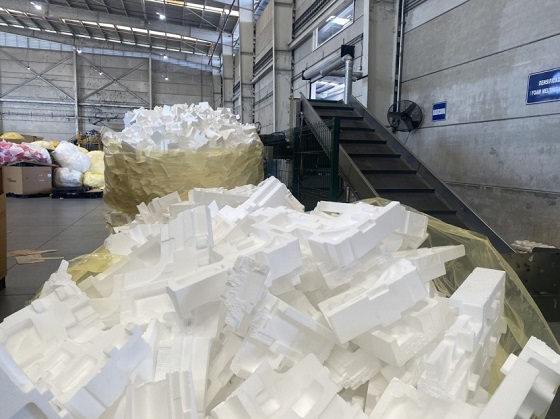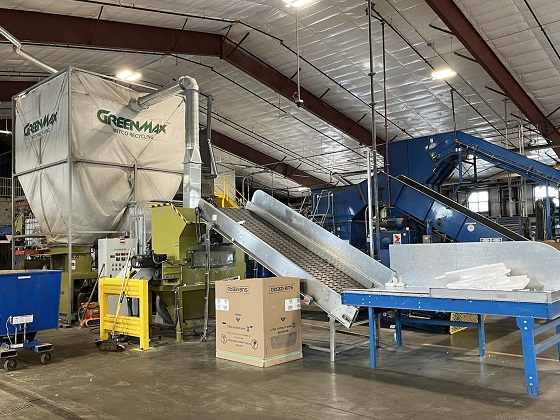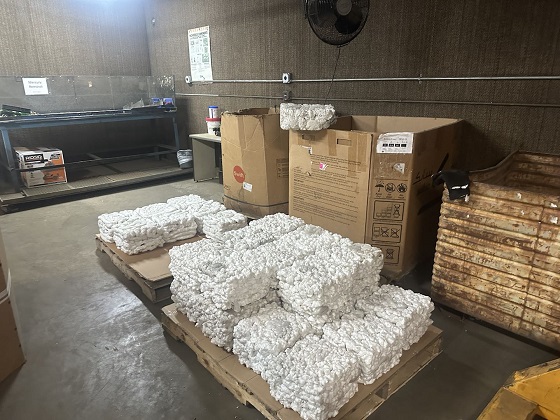EPS is 100% Recyclable | How to Dispose of EPS Properly
EPS is made use of for whatever from takeout containers to packaging. Yet is EPS recyclable? And what's its environmental impact? From the takeout containers at your preferred restaurant to the packing peanuts in your brand-new item's packaging, you'll find that EPS is everywhere. But, as often as we use it, there's still little information on whether EPS is recyclable or not.
EPS is versatile. It's light-weight, making it a perfect cushion for delivering fragile items such as electronics and appliances. At the same time, it offers insulation, which is why you'll often see it used to house coffee or maybe even to line your walls: It works as a sealant to lock out cold air, useful during the winter months.

Nonetheless, EPS is also known for being harmful to the environment and humans. This begs the question: If EPS is harmful, how come we're still using it? Extra significantly, what can we do to lessen the use of EPS? Here's everything you need to know.
The Environmental Impact of EPS
The material itself is a form of polystyrene, which is a petroleum-based plastic that can either be solid plastic or foam. The frothed variation is also called Expanded Polystyrene, which is what we know as EPS. EPS is made of polystyrene beads. If you were to carefully examine a piece of EPS, you can see it is comprised of small grains that look joined together. These beads are light-weight, strong, and possess thermal insulation and shock absorption properties. Because of this, EPS has a lot of uses, making it versatile and convenient to use.
Nevertheless, as versatile as it is, EPS comes with an environmental effect-- one that's closely pertaining to the amount of EPS products getting sent to landfills. According to the Environmental Protection Agency (EPA), in 2018 alone, Australian produced concerning 40,000 tons of EPS containers-- and less than 2,000 tons were recycled. And also, about 70,000 tons of polystyrene bags, sacks, and wraps were created in 2018-- and once again, just about 20,000 tons were recycled.
EPS is non-biodegradable, which suggests it will not break down naturally. So, it's not completely untraceable or harmless. When EPS get sent to landfills-- or even worse, when they're littered-- they release chemical pollutants and greenhouse gases. Both of which contribute to global warming.

Is EPS Recyclable?
Sadly, EPS isn't as recyclable as we want it to be. Many EPS products do include a small recycling symbol and the # 6 tag. Recycling EPS isn't as cut and completely dry as recycling other kinds of waste, like plastic. It faces a few challenges that prevent its recyclability. For something, EPS is tough to change to its a lot of fundamental kind and really few of recycling centers have the necessary equipment required to recycle it throughout the recycling process.
And also, tossing EPS products into the reusing bin can really contaminate the entire recycling container. This can lead to the entire container getting rejected when it arrives at a recycling center. Why? Since EPS consists of harmful toxins, and if those toxins are broken down by recycling processes, they might end up in products we use in our day-to-day lives.

GREENAMX EPS Recycling Machine New Solution
GREENMAX Heracles Series Hydraulic Compactor is an EPS recycling machine specialized in compressing waste EPS packaging, EPS DUST, PU, EPP, etc. into blocks by hydraulic pressure without heating. Equipped with high-efficient automatic hydraulic system, the waste EPS can be crushed in the storage bin of the GREENMAX Heracles Series EPS Compactor and then compacted into dense and uniform blocks with a volume reduction ratio of 70:1, greatly reducing the volume of waste EPS, therefore saving storage and transportation costs. In particular, Heracles Series Hydraulic Compactor has the benefits both the energy saving of our Apollo Series Cold Screw Compactor and the high density of our Mars Series Melting Machine.
If you are interested in EPS recycling, you can contact us and we will provide professional solutions based on your actual conditions.
